- HOME
- Research
- Research Category
- Advanced Data Science Ueda Laboratory
Advanced Data Science
Ueda Laboratory
Deciphering Life Phenomena with Data Science Technology
We are researching methods using data science, such as BIGDATA analysis and machine learning, to analyze biological data and aim to discover new life phenomena.
Life Information Analysis Using Data Science
We are developing informatics methods to analyze high-throughput measurement data obtained from next-generation sequencers. Recently, it has become difficult to process large amounts of biological data using conventional methods. Furthermore, to integrate data of different dimensions (multi-omix, muilti-modal data), it is essential to incorporate the latest results of big data analysis techniques and machine learning. The applications of next-generation sequencing and bioinformatics are diverse, but we are conducting research in the following areas while also developing software: ・Data analysis for nanopore sequencers: We are developing deep learning software to detect RNA modifications from the wave current signals of nanopore sequencers and are conducting various RNA modification detections. RNA modifications are involved in various life phenomena and are also advancing in mRNA drug development. ・Drug Repositioning: The development of a new drug may require an investment of several hundred billion yen, and it is especially difficult to develop new drugs for rare diseases. Although various methods have been proposed for drug repositioning research, we are developing a new method to apply Graph Attention Autoencoder to large multimordal graphs with drug, protein, and disease nodes.
Problem Solving with Mathematical Methods
With the accumulation of large amounts of digital data and the evolution of machine learning algorithms, mathematical methods can now be applied to solve problems in various fields. In our laboratory, we are also conducting research on drug repositioning using Graph Neural Networks, and knowledge graph construction and its applications using large-scale language models (LLM) based on Transformer models. Knowledge about AI and data science grows and changes constantly, making it a difficult problem to build educational programs with a complete picture. If we can represent and visualize the spread and dependencies of knowledge in a knowledge graph, it can be applied in various ways. In our laboratory, we are researching how to construct such knowledge graphs semi-automatically by using LLM and large-scale data. In addition, we are promoting Project CDDI (Cross Disciplinary Data Initiative), aimed at leading and supporting data-driven research, education, and social implementation by linking seven research areas through data science.
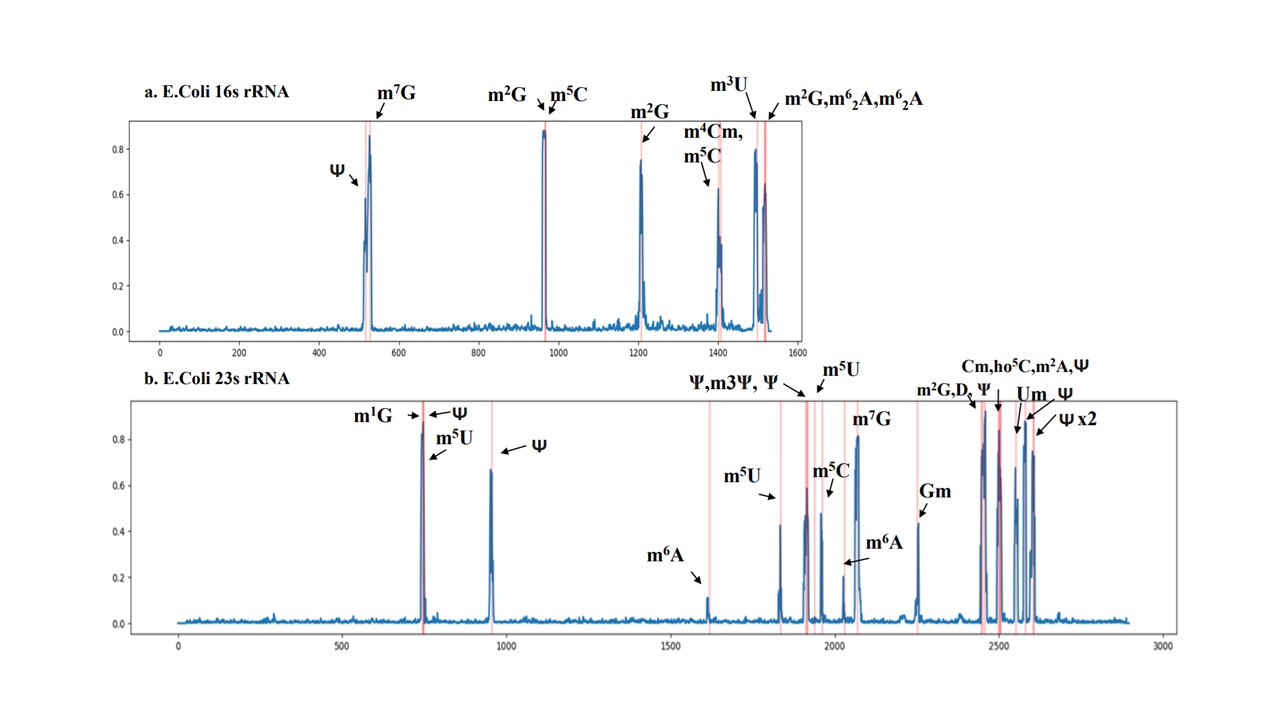
Detection of different RNA modifications on rRNA
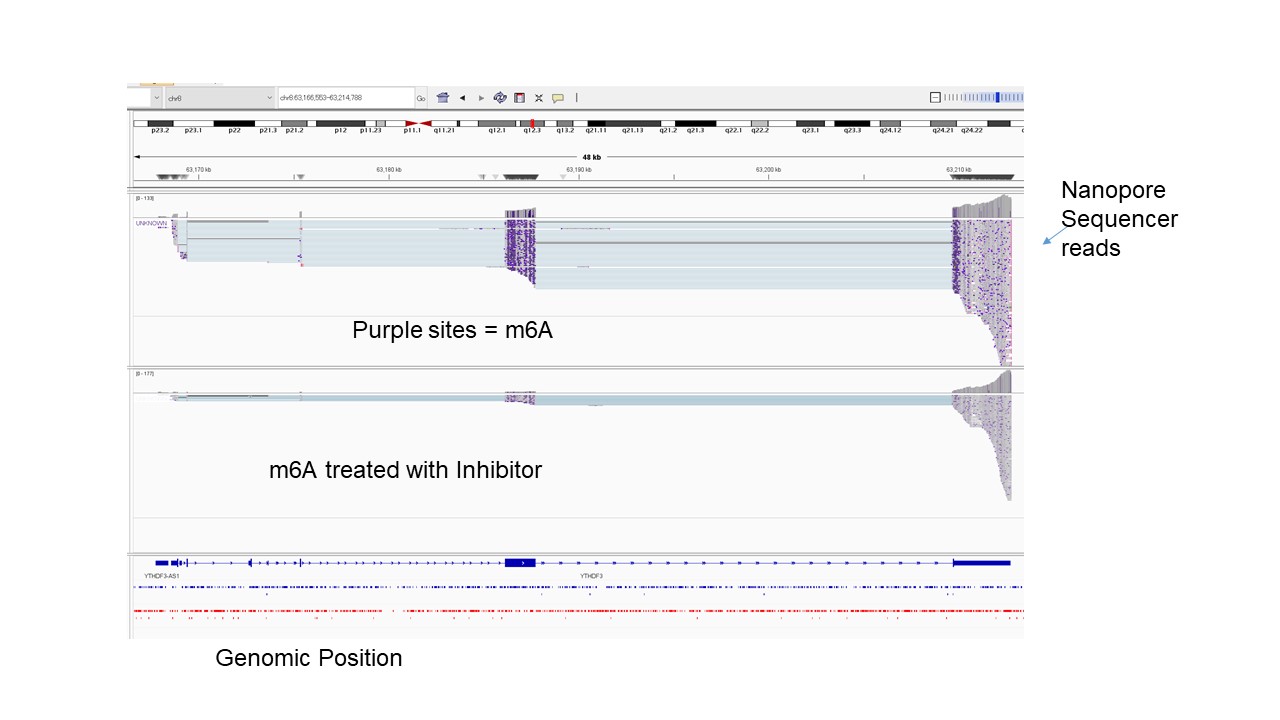
Detection of m6A modification on each Read
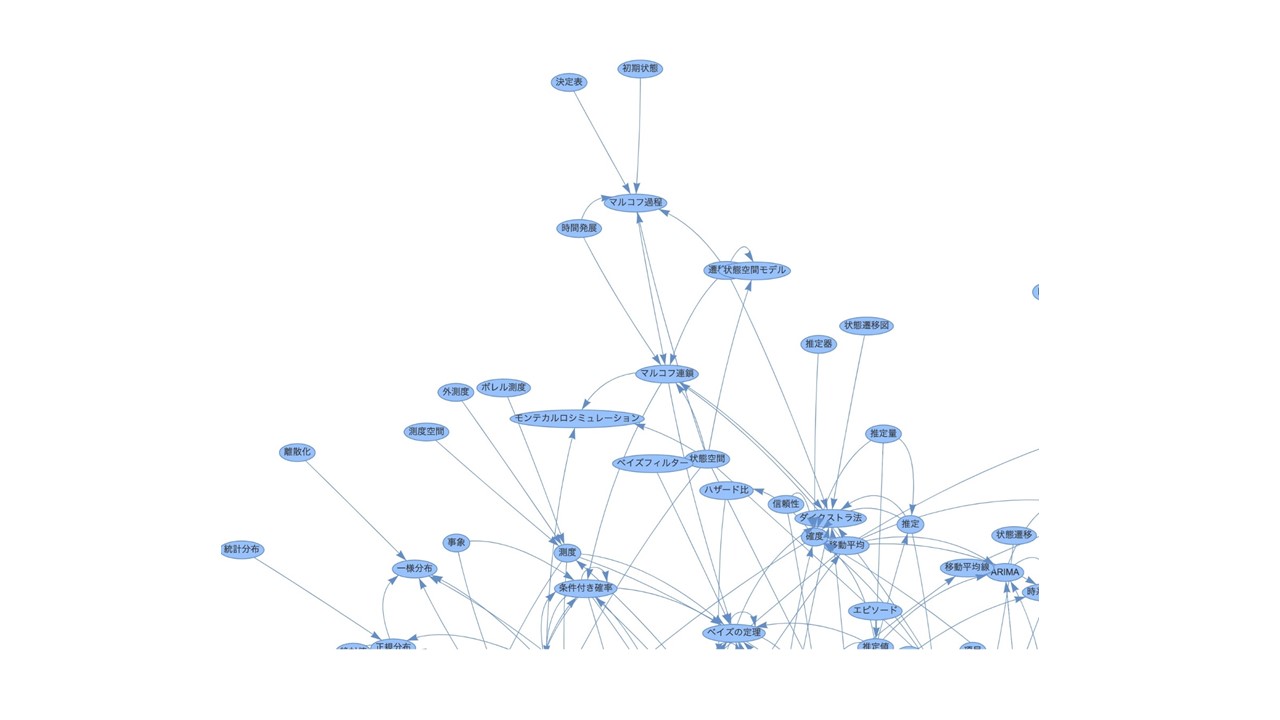
Knowledge Graph Created Using LLM
At the Ueda Laboratory, we are primarily focused on "RNA modification using nanopore sequencers," but we are also working on a variety of other themes. We actively engage in collaborative research with other fields within the Advanced Science Research Center as well as with other research institutions. We aim to advance research using AI in numerous fields, including biology.I used to think that computer science was a field led by theory since Turing, but deep learning feels more like the steam engine era where the machines were developed before the theory was fully established. It feels like we have returned to the 18th century in a strange way, with a lot of chaos and experimentation. Perhaps such transitions are always messy.This is unrelated to my research, but I recently enjoyed reading the original book of the Oppenheimer movie and a book on polyvagal theory. In any case, if you are interested, let's research together. Please feel free to contact me.
Member
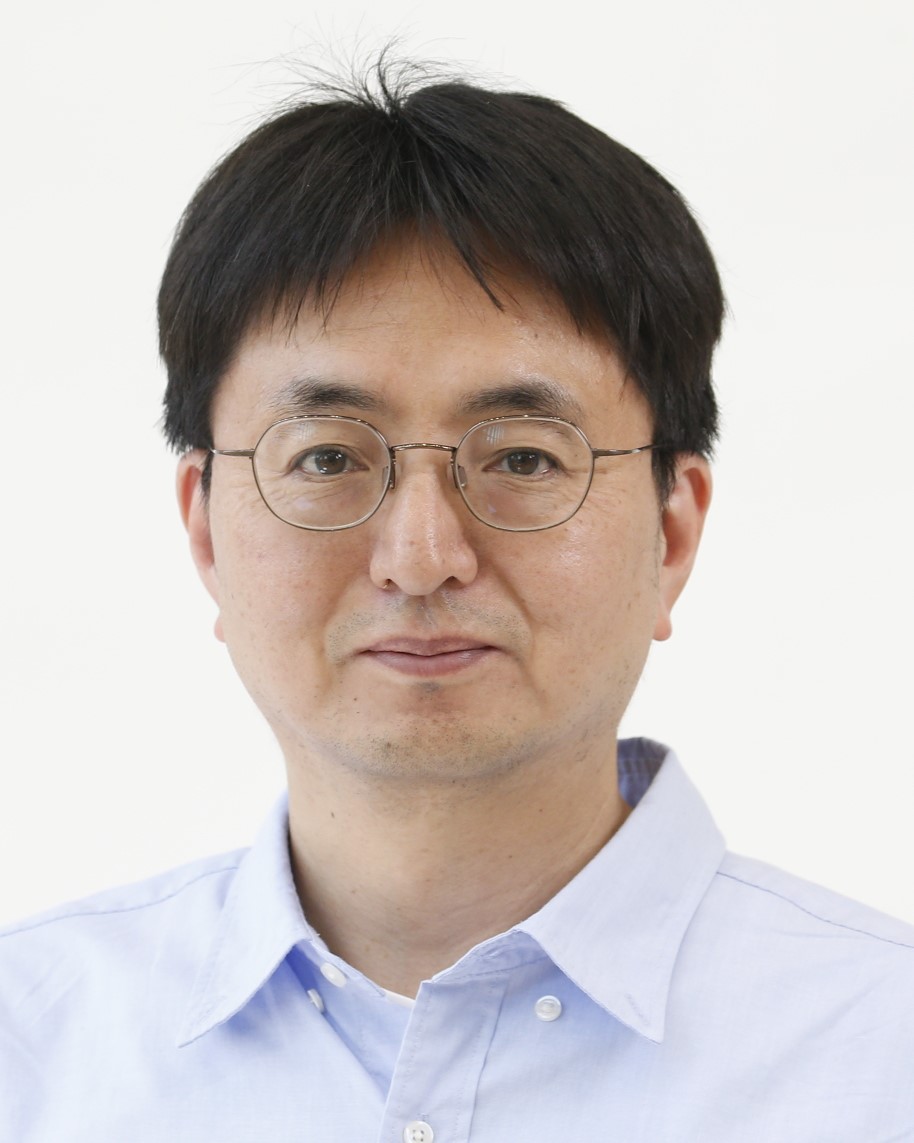
-
- Project Lecturer
Hiroki UEDA
Research Area : Bioinformatics, Data Science - Project Lecturer
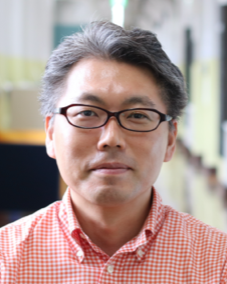
-
- Project Associate Professor
Shingo TSUJI
Research Area : Machine Learning, Bioinformatics - Project Associate Professor
Laboratory Homepage
Tags

